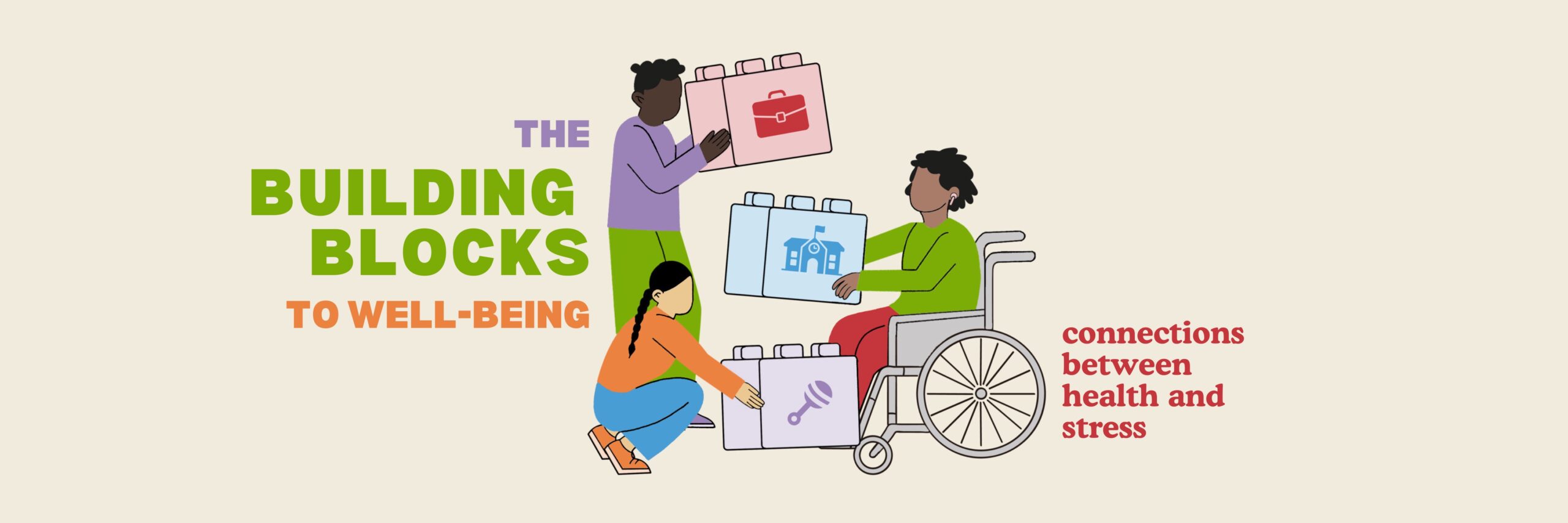45th Minority Health Conference Events
The 45th Annual Minority Health Conference was a success!
Thank you to our attendees, keynotes, breakout session speakers, poster presenters, sponsors, and everyone who helped make the conference possible.
45th Agenda
Please fill out this evaluation survey for feedback on the 45th Annual Minority Health Conference!
Iheoma U. Iruka, Ph.D
Biography
Iheoma U. Iruka, Ph.D., is a Research Professor in the Department of Public Policy and the Founding Director of the Equity Research Action Coalition at the Frank Porter Graham Child Development Institute at UNC Chapel Hill. She has a B.A. in Psychology from Temple University, an M.A. in Psychology from Boston University, and an M.S. and Ph.D. in applied developmental psychology from the University of Miami, FL. Dr. Iruka is leading projects and initiatives focused on ensuring that minoritized children and children from low-income households thrive through the intersection of anti-bias, anti-racist, and culturally grounded research, program, and policy. Dr. Iruka has authored over 80 books and papers and has given over 300 talks addressing systemic inequities and advancing research and action on the well-being of children and families. She serves on numerous national and local boards and committees, including the National Academies of Sciences, Engineering, and Medicine, the American Psychological Association’s Board of Educational Affairs, the National Science Foundation, and the Lancet Commission on Racism and Child Health. In addition to being on the National Advisory Committee for the U.S. Census Bureau and a Census Advisor for the National Urban League, Dr. Iruka is the recipient of the 2022 American Psychological Association Mid-Career Award for Outstanding Contributions to Benefit Children, Youth, and Families and the 2023 Association of University Centers on Disabilities Leadership for All award-winner. She was recently named a 2023 American Psychological Association (APA) Fellow.
Abstract
Killing Them Softly: Racism and the Child Health Crisis
Blurb: The early years are a sensitive period of development. However, Black children and other children from marginalized communities are having to deal with unequal childhoods from the potential loss of a parent due to maternal mortality, COVID-19, and inequitable access to and experiences in early childhood intervention and education to intergenerational poverty and under/disinvested communities. Shaped through the Racism + Resilience + Resistance Integrative Study of Childhood Ecosystem (R3ISE integrative model), this keynote discusses how the endemic of racism, bias, and discrimination is harming the lives of young children. Limiting the dehumanizing experiences of children and highlighting the assets of their families and communities will be focused on, coupled with practices and policies that can begin to transform systems and programs to advance racial equity and child and human rights.
Chantel Martin, Ph.D
Biography
Dr. Martin is an Assistant Professor in the Department of Epidemiology in the Gillings School of Global Public Health, Faculty Fellow at the Carolina Population Center, and Co-Director of Cardiopulmonary Research at the Center for Environmental Health & Susceptibility at the University of North Carolina at Chapel Hill. Her research program uses rigorous methodological and theoretical approaches to investigate social and structural determinates of racial disparities in chronic disease risk across the life course and how exposures in the social and physical environment become biologically embodied—or “get under the skin—to impact chronic disease risk. She has established extensive collaborations to address novel questions central to her research program with researchers from public health, sociology, public policy, environmental health, health policy and management, and at other institutions, such as Duke University, North Carolina State University, and the Environmental Protection Agency.
Dr. Martin’s innovative research program has resulted over 40 peer-reviewed publications in top public health, epidemiology, and social sciences journals. Her work has been nationally recognized with several conferences and invited presentations at national conferences and the National Institutes of Health. In 2022, she received the Academy of Behavioral Medicine’s Early Stage Investigator Award and the Gillings School of Public Health Faculty Award for Excellence in Health Equity Research. Her dedication to leadership in the field of excellence, health equity, and inclusiveness is also demonstrated in her teaching record. Dr. Martin was involved in the development of a required course in the Department of Epidemiology for all incoming doctoral students that introduces key concepts in conducting socially responsible epidemiologic research. In recognizing Dr. Martin’s high-quality teaching, she was nominated by her students and received the 2023 UNC Gillings School of Global Public Health Teaching Innovation Award.
Abstract
“Stress Really Can Kill You!”
Despite advances in medical technology and increases in healthcare spending, Black individuals in the U.S. have poorer health outcomes than White individuals at every stage across the life course. In fact, Black adults have the physiological profile of their White counterparts 6-10 years older. If such disparities are not explained by differences in individual behaviors, where should we focus to reduce health inequalities? In this keynote, Dr. Martin will discuss her personal journey as an epidemiologist working to better understand drivers of health inequalities. This talk will explore our understanding of stressors, its impact on our daily lives and health, and our charge as public leaders in the fight for health equity.
Breakout Sessions and Posters
1. Advancing Digital Equity and Inclusion Efforts to Improve Emotional Health and Wellbeing of Migrant and Seasonal Agricultural Workers and their Families in North Carolina | Modjulie Moore and Rosa N. Miranda
2. #CapeBreak: The Reverse Engineering of the Strong Black Woman Phenomena | Chris Omni
3. Supporting Healthy Outcomes Within Black and Brown Perinatal Communities | Angela Krider, MSW, LCSW and Miranda Schartz, BA
4. Nonpartisan Voter Registration in Health Care — Enhancing Civic Engagement for Health Improvement (Virtual Presentation) | Lizbeth Alvarez
5. It’s Messing With Our Heads — A North Carolina Intervention to Decrease Vaping Among Young Adults | Nnenne M. Asi and Kristen Tertzakian
6. Creating and Holding a Safe Space for African American Teens and Mental Health | Ladovia Washington
7. Lessons from Indian Health: Rural Health Workforce Development | Michael Toedt
8. Beyond the Mask: The Deteriorating Mental Health of the “Strong Black Woman” | Adaobi Iwuanyanwu
- Policy Analysis and Recommendations: High Prevalence of Diabetes and Hypertension Among the Immigrant Adult Population of New York City | Author & Presenter: Sonaiya Sneh
- Impact of North Carolina Community Health Workers in Providing Access to Social Support Resources During COVID-19 | Author and Presenter: Amy Kryston
- The Region 10 NC Minority Diabetes Prevention Program (NC MDPP), ENC Prevent Diabetes promoting health equity to reduce diabetes disparity among minorities. | Author and Presenter: Laquelia Lewis
- A Literature Review of HIV Prevention Programs for Black Women | Author & Presenter: Denise Burwell
- Utilizing Community Health Workers to Address COVID-19 Health Disparities in Durham County | Author and Presenter: Edeia Lynch
- Understanding and Measuring Prediabetes-Related Stress Among Latinx Adults | Author and Presenter: Tiffiany Portacio
- Skin Tone – A Marker for Bias Known as Colorism – In Relation to Sleep Health Among African American Women | Author & Presenter: Bethany T. Ogbenna
- Linguistic Acculturation is Associated with Better Cardiometabolic Health among Bhutanese Refugees Living in the United States | Author and Presenter: Jamie A. Murkey
- Breaking Language Barriers in Healthcare: Assessing the Impact of Refugee Community Partnership’s Language Navigator Program for Refugee and Migrant Patients | Author & Presenter: Emily Benson
- Building Bridges to Well-being: The Role of Collaborative Initiatives in Addressing Health Disparities Among Marginalized Communities During the COVID-19 Pandemic | Author and Presenter: Breyana D. Davis
- The Skin I’m In: An Intersectional Exploration of the Colorism Experiences of Young Adult Black Women | Author and Presenter: Brianna Halliburton
- Maladaptive Coping Mediates Associations between Everyday Racial/Ethnic Discrimination and Insomnia Symptoms | Author and Presenter: Rupsha Singh
- Financial Constraints, Partnership Dynamics, and Stigma: Barriers to Cervical Precancer Topical Treatment in Kenya | Authors and Presenters: Jenny Carpenter, MHS and Caroline Hoch, BS
- Investigating The Association Between Exercise and Quality of Life Among Breast Cancer Survivors in The Black Women’s Health Study | Author and Presenter: Natasha R. Burse
- Geographic and Socioeconomic Determinants of Prostate Cancer Incidence in the United States | Author & Presenter: Shaun R. Jones
- “We have stress just from living in this country”: Stress appraisals and coping mechanisms of Latino immigrants in Mecklenburg County | Author and Presenter: Sarai Ordonez
- Bacterial Vaginosis Disparities: Exploring Association With Community-Level Poverty and Healthy Food Access in Chicago, IL | Author & Presenter: Emily Shi
- Assessing differences among organizational perspectives to target strategic leverage-points in cardiovascular disease evidence-based program implementation efforts in rural African American communities in North Carolina | Veena K. Reddy
About the Minority Health Conference
The Minority Health Conference is the largest and longest-running student-led health conference in the country. The conference aims to raise awareness around health disparities and mobilize students, academics, and community members to take action for change. Started in 1977 by the Minority Student Caucus, the conference is nationally recognized and respected, attracting more than 500 attendees each year and hundreds more who view it via webcast.
Organized by the UNC Minority Student Caucus at the Gillings School of Global Public Health.


